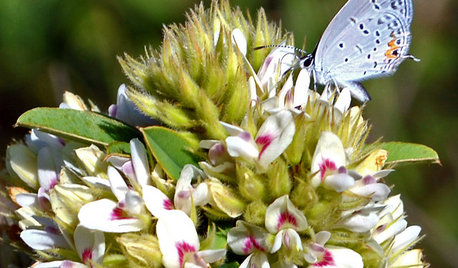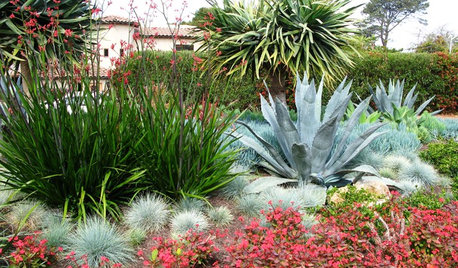Must compost be worked into soil?
kim0201
9 years ago
Related Stories

GARDENING GUIDESHouzz TV: Make a Worm Bin for Rich Soil and Happy Plants
A worm-powered compost bin that can fit under a sink turns food scraps into a powerful amendment for your garden. Here’s how to make one
Full Story
GARDENING GUIDESGet on a Composting Kick (Hello, Free Fertilizer!)
Quit shelling out for pricey substitutes that aren’t even as good. Here’s how to give your soil the best while lightening your trash load
Full Story
GARDENING GUIDES5 Prairie Wildflowers That Can Heal Your Soil
Get free, organic soil fertilizer with nitrogen-pumping plants that draw pollinators too
Full Story
GARDENING GUIDESGardening Solutions for Dry, Sandy Soils
Has your desert or beachy site withered your gardening creativity? Try these ideas for a beautiful, easy-care landscape
Full Story
GARDENING GUIDESThe Poop Scoop: Enrich Your Soil With Good Old Manure
Get over the ick factor already — this natural super-ingredient for soil has so many benefits, you'll wonder why you ever went chemical
Full Story
GARDENING GUIDESGardening Solutions for Heavy Clay Soils
What’s a gardener to do with soil that’s easily compacted and has poor drainage? Find out here
Full Story
GARDENING GUIDESHow to Stop Worrying and Start Loving Clay Soil
Clay has many more benefits than you might imagine
Full Story
FARM YOUR YARDHow to Get Good Soil for Your Edible Garden
The nutrients in your soil feed the plants that feed you. Here are tips on getting it right — just in time for planting season
Full Story
GARDENING GUIDESGrow a Beautiful Garden in Alkaline Soil
Got alkaline soil? Learn how to manage it and the many beautiful plants that will thrive in this ‘sweet’ soil
Full Story
GARDENING GUIDESHow to Pick a Mulch — and Why Your Soil Wants It
There's more to topdressing than shredded wood. Learn about mulch types, costs and design considerations here
Full Story






Kimmsr
luckygal
Related Professionals
Hershey Landscape Architects & Landscape Designers · Norton Shores Landscape Architects & Landscape Designers · Arlington Landscape Contractors · Fishers Landscape Contractors · Inglewood Landscape Contractors · Middletown Landscape Contractors · North Canton Landscape Contractors · South Portland Landscape Contractors · Wentzville Landscape Contractors · Quartz Hill Landscape Contractors · Coronado Decks, Patios & Outdoor Enclosures · Baton Rouge Decks, Patios & Outdoor Enclosures · Rancho Palos Verdes Decks, Patios & Outdoor Enclosures · South Houston Decks, Patios & Outdoor Enclosures · Towson Decks, Patios & Outdoor EnclosuresLaurel Zito
lazy_gardens
rhizo_1 (North AL) zone 7
LocavoreT
Kimmsr
toxcrusadr
Kimmsr
SequoiaMatt99
kim0201Original Author
johns.coastal.patio